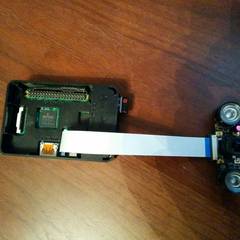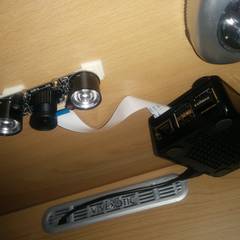


Raspberry Pis are useful little computers. I own several, since I work with them in my day job, and I thought it was about time I put one to use.
I also happen to keep tropical insects. Specifically, beetles. These are not your garden variety beetles, unless you happen to live in a rain forest. The ones I have at the moment are elephant beetles which come from Central and South America. Here's a photo:
Male elephant beetle. Banana for scale.
These insects are mostly nocturnal. During the day they tend to burrow under their bedding material (moss), or hang out on a branch. But during the night, they can be quite active. I know this because in the morning they have re-arranged the branches in their tank. continue reading…